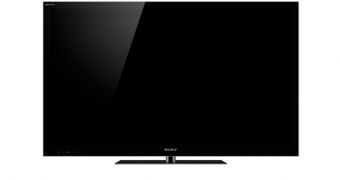Very soon you won't be able to find Sony and Samsung-branded TVs for the same low prices you might have seen a few weeks or months before today.
The two companies are taking an unfortunate page out of Apple's book: minimum price enforcement for consumer electronics products.
More precisely, Sony and Samsung have decided to force retailers to never sell their TVs below a certain price.
In other words, it is their opinion that cheap TVs just shouldn't be so cheap anymore and that discounts should not happen.
You would think that it's against the law, but it isn't. In fact, the Supreme Court has already ruled in favor of retailers having to abide by whatever minimum pricing policies are set in place by product suppliers.
Samsung doesn't really have much of a cause to issue such a demand. It has been selling products well and its finances are solid.
Sony, on the other hand, reported a net loss of $5.7 billion last time it held a conference call with financial analysts. That's 4.53 billion Euro, give or take.
As such, its profits could benefit, but only if consumers don't simply decide to buy their TVs from other manufacturers.
Low-cost 1080p TVs have become such a sore issue due to the fact that there is not much of a reason to get anything better.
Sure, buying a big beast of a super-resolution display is good for the ego, and useful for covering up a bare wall, but TV content doesn't come in a high video quality for owners to make the best of them, for the most part.
Worst-case scenario is for all other display makers to follow Sony and Samsung's example and impose minimum prices of their own. Of course, this could be a sword just as double-edged as the policies themselves: TV makers could end up in a minimum price limit war where each of them vows the “smallest minimum price in the industry” or something along those lines.

 14 DAY TRIAL //
14 DAY TRIAL //